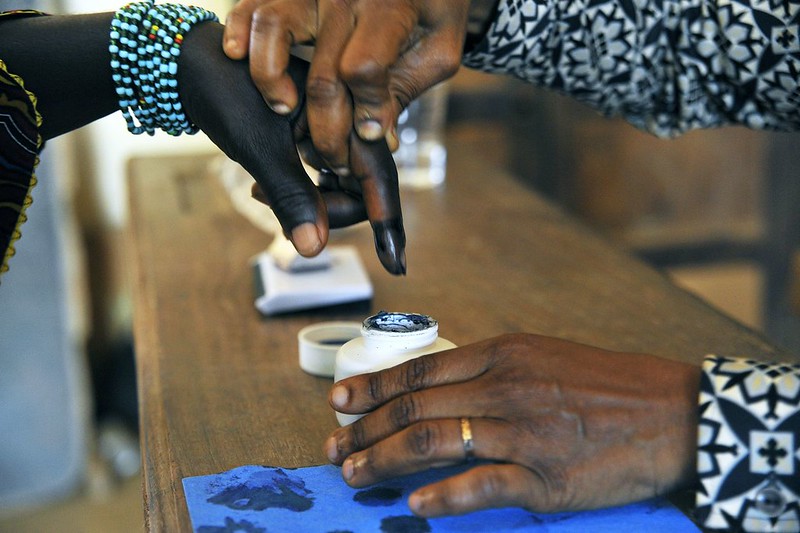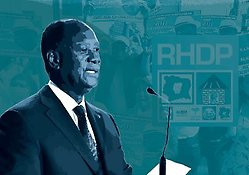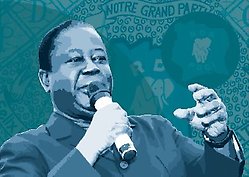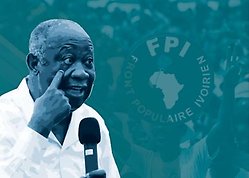Côte d'Ivoire: “Result strengthens Ouattara’s legitimacy”

Côte d'Ivoire’s ruling party RHDP won 58% of seats in the 6 March parliamentary elections, according to the first official results, news agency Reuters reports. “It strengthens Ouattara administration’s legitimacy, in light of the controversial presidential elections last year, and consolidates the RHDP’s control over parliament”, says NAI Senior Researcher Jesper Bjarnesen.
The vote could be seen as a necessary step towards a less polarized and confrontational political climate in Côte d’Ivoire, but two major questions still need to be answered, according to Bjarnesen.

Jesper Bjarnesen. Photo: Mattias Sköld
First, whether the opposition and their supporters will accept the result, considering that the composition of the Independent Electoral Commission was a hotly contested issues in last year’s poll.
“We should remember that the escalation of armed conflict following the 2010 presidential elections began after the announcement of the results, not around election day. There is a similar risk today – that a disappointed opposition may mobilise their supporters on the grounds that the election was rigged.”
Second, whether Ouattara and his party will use this electoral endorsement to encourage collaboration in parliament and national reconciliation. If the RHDP uses its majority to exclude the opposition from influence, this could fuel polarization and create an equally tense confrontation in coming elections.
“Even if the aftermath of the elections remains calm, the past year has been a considerable backslide for Ivorian democracy. A situation where the political process is in the hands of an individual, rather than a set of accountable institutions, is just not the right path towards a more functional democracy.”
New Policy Note on Côte d’Ivoire’s legislative election – out soon.
NAI Senior Researcher Jesper Bjarnesen and Peace and Conflict Researcher Sebastian van Baalen analyse the broader implications of Côte d’Ivoire’s democratic backsliding.
See also 2020 Policy Note Ouattara’s third-term bid raises old fears: Risk of violence in Côte d’Ivoire’s upcoming presidential elections.
Ahead of the 6 March legislative election the two ex-presidents Laurent Gbagbo, of Ivorian Popular Front, and Henri Konan Bédié, of Democratic Party of Ivory Coast, had teamed up to urge voters to support opposition candidates to the National Assembly in order to “avoid the consolidation of absolute power in our country” and “to reconcile the Ivorian people”.
The accusations against Ouattara referred to his decision to run for a third term in office. The decision was strongly criticised by the opposition and led to deadly street clashes between supporters of the rival candidates.
Ouattara and his supporters view the country’s new constitution – approved in 2016 following his re-election – as giving him the legal right to run for president again. The opposition maintains that a two-term limit still stands.
Ouattara won last year’s presidential election with 94.27% of the vote after the opposition had decided not to take part.
TEXT: Mattias Sköld
Côte d'Ivoire's three political heavyweights

President Alassane Ouattara (RHDP)
President since 2011. An economist by profession who has worked for the International Monetary Fund and the Central Bank of West African States (BCEAO). Prime minister from 1990 to 1993 under Côte d’Ivoire’s first president, Félix Houphouët-Boigny. Became president of the Rally of the Republicans (RDR) party in 1999. In 2018, he launched a new umbrella party, the Rally of Houphouëtists for Democracy and Peace (RHDP), which he said would help ensure continuity.

Henri Konan Bédié (PDCI)
Former president (1993-1999). Under his presidency, ethnicised politics escalated, eventually defining the fault lines of the 2002-2007 civil war. Leader of Democratic Party of Ivory Coast (PDCI), whose support was critical to Ouattara's run-off victory in 2010 and re-election in 2015. The two parties later fell out in 2018 over the PDCI's insistence that it should be able to choose the candidate for a joint ticket in 2020. Bédié has since challenged Ouattara and formed an unholy alliance with his former arch-enemy Laurent Gbagbo and the Ivorian Popular Front (FPI).

Laurent Gbagbo (FPI)
Gbagbo was president during a turbulent period between 2000 and 2011, when civil warfare divided the country. He refused to accept that Ouattara beat him in the 2010 presidential poll and some 3,000 people were killed in post-election violence before Gbagbo was arrested in April 2011. He was tried for crimes against humanity at the International Criminal Court in The Hague, but was acquitted in January 2019. He has lived in Brussels since then, pending a possible appeal. In the 6 March legislative elections, for the first time in a decade his branch of the FPI will put forward candidates.
